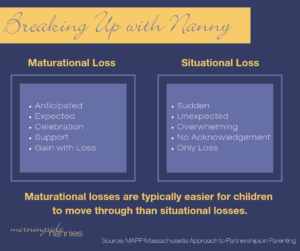(713) 526-3989
Call Our Houston Office For a Complimentary Consultation (713) 526-3989
We put our trust in Morningside to place us with a nanny that was perfect for our family’s needs and Morningside delivered.
Client X
I wanted to pass along how happy I am to have Fatima working with our family. After just 11/2 days, I can see that she is a perfect fit for for child. We are lucky to have her.
Mrs Irvine
Morningside Nannies only sent me nannies that fit my needs. I felt that I wasn’t sent the resume of everyone on file.
Jodie MacCrory, IBM
Morningside was by far the best as compared to the other services we used!
Dr. Michael O'Reilly and Dr. Valerae Lewis
Originally, I tried to find a nanny on my own and it took me much, much longer and only half of them spoke English. I had to do my own background checks. Morningside Nannies made it much easier, faster and more efficient.
Holly Weinstock, Stay at home mom
During our search for our current nanny I used several well-known services in Houston. I found that Morningside Nannies had the highest- quality applicants in town.
Dr. Katherine Tiwari
Indera is just wonderful. She is always happy and clearly loves her job. She is kind and fun and as for the practicalities, she is always on time and very flexible.
Mrs Carter
I was very impressed with all of my dealings with Morningside and took great comfort in knowing that your candidates were well “researched” and of a high caliber. Our full-time nanny far exceeded what I thought was available in the Houston market, and I was just as impressed with our part-time nanny who was another Morningside referral. I do wish more folks would use professional nanny agencies such as Morningside to locate full-time childcare!
Elizabeth Tobin
Morningside Nannies was far more professional and focused than the other agencies. They listened to my request and responded promptly. I feel very fortunate to have such superb childcare and appreciate the luxury of returning to work with-out worry.
Jeremy and Lauren Blachman
It’s been a dream to work with Morningside, the caliber of nannies was definitely apparent.
Rachael C
- Home
- Our Services
- Costs & Fees
- Find a Position
- Resources
- FAQ
- For Families
- For Nannies
- Nanny Health Insurance
- Nanny Taxes
- Nanny Organizations
- Fun Things to Do With Kids in Houston
- Houston and Surrounding Communities
- Alvin
- Angleton
- Baytown
- Bellaire
- Clute
- Conroe
- Deer Park
- Dickinson
- Freeport
- Friendswood
- Galena Park
- Galveston
- Humble
- Jacinto City
- Katy
- La Marque
- La Porte
- Lake Jackson
- League City
- Missouri City
- Pearland
- Rice Village
- Richmond
- River Oaks
- Rosenberg
- South Houston
- Sugar Land
- Texas City
- The Woodlands
- West University Place
- Pasadena
- About Us
- Blog
- Contact



